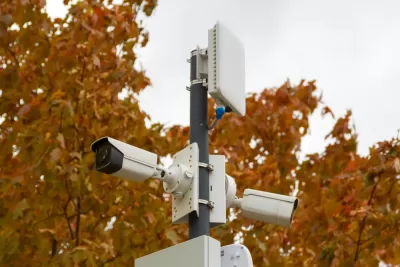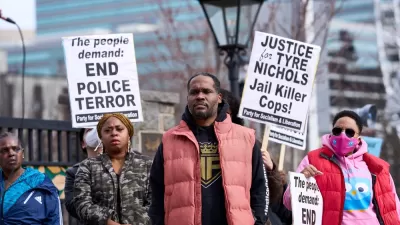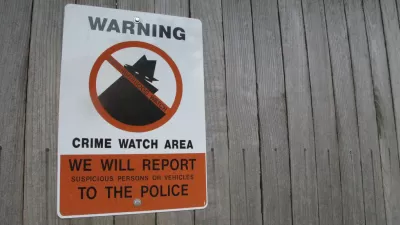As the technology gets cheaper, AI surveillance systems are gaining popularity in some parts of the country, like the neighborhood of Magnolia in Seattle.

Melissa Hellman reports on the proliferation of a private artificial-intelligence security system called Flock Safety in the city of Seattle. Ten neighborhoods around the city are using Flock Safety, including Magnolia, which is where the article's attention focuses.
"The system uses computer vision and machine learning to digitize and categorize images of license plates, the color, make and model of vehicles, as well as how many times a car has entered the neighborhood in a 30-day period," according to Hellman. With that technology, resident Phil Andrews has detected "an uptick in neighborhood disruptions near the secluded waterfront community of dead-end streets called Land’s End. He noted a break-in, package theft and people meandering through the neighborhood who appeared 'high as a kite."
According to Hellman, studies say there are two sides to this private surveillance coin: "While studies show that security cameras can prevent crime when used in conjunction with other deterrents, such as increased lighting, some researchers say AI surveillance systems exacerbate users’ inherent biases and impact people who are disproportionately policed, such as people of color and those experiencing homelessness."
The feature-length article includes more details on how Magnolia residents bought and adopted the technology, how police use surveillance footage from systems like Flock Safety, the adoption of Flock Safety in other 300 U.S. cities, and the business of private security systems, with home security expected to be a $48 billion business next year.

Alabama: Trump Terminates Settlements for Black Communities Harmed By Raw Sewage
Trump deemed the landmark civil rights agreement “illegal DEI and environmental justice policy.”

Planetizen Federal Action Tracker
A weekly monitor of how Trump’s orders and actions are impacting planners and planning in America.

Why Should We Subsidize Public Transportation?
Many public transit agencies face financial stress due to rising costs, declining fare revenue, and declining subsidies. Transit advocates must provide a strong business case for increasing public transit funding.

Understanding Road Diets
An explainer from Momentum highlights the advantages of reducing vehicle lanes in favor of more bike, transit, and pedestrian infrastructure.

New California Law Regulates Warehouse Pollution
A new law tightens building and emissions regulations for large distribution warehouses to mitigate air pollution and traffic in surrounding communities.

Phoenix Announces Opening Date for Light Rail Extension
The South Central extension will connect South Phoenix to downtown and other major hubs starting on June 7.
Urban Design for Planners 1: Software Tools
This six-course series explores essential urban design concepts using open source software and equips planners with the tools they need to participate fully in the urban design process.
Planning for Universal Design
Learn the tools for implementing Universal Design in planning regulations.
Caltrans
Smith Gee Studio
Institute for Housing and Urban Development Studies (IHS)
City of Grandview
Harvard GSD Executive Education
Toledo-Lucas County Plan Commissions
Salt Lake City
NYU Wagner Graduate School of Public Service




























